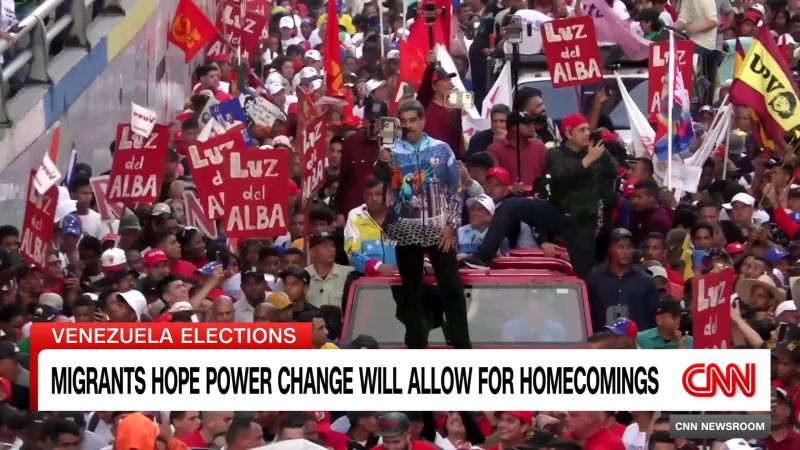The democratization process in any nation is not an isolated event. Instead, it’s an intertwining web of implications that affect regional dynamics, international relations, and global societies. In the context of the Latin American region, Venezuela stands as a noteworthy name where free and fair elections could potentially shape the realities of millions. The Venezuelan crisis has not only led to socio-economic turbulence within its borders but has fuelled a significant refugee crisis, leading to massive migration. The entire scenario not only impacts Latin America but also stands significant for the President of the United States, Joe Biden. Here we seek to understand why a fair election in Venezuela could change the fate of millions of migrants and how it could influence Joe Biden’s presidency.
To begin with, understanding the gravity of the Venezuelan migratory crisis is critical. The socio-political conditions in Venezuela have propelled a migration crisis affecting over 5.4 million people since 2014, according to UNHCR and IOM’s joint responses for Venezuelans dashboard. This massive displacement has affected neighbouring countries like Colombia, Peru, and Ecuador which host the majority of these migrants. Majority of them live under precarious conditions, lack access to basic amenities, health care, education, and jobs. Their fate dangles between survival and striving for a decent life. A free and fair election could alleviate their existing dismal conditions by introducing stability, governance, and economic recovery in the homeland they were compelled to leave.
Apart from the migrant crisis, a free and fair Venezuelan election holds substantial geopolitical implications for the United States, particularly for President Joe Biden. Firstly, addressing the Venezuelan crisis is pivotal in enhancing the U.S’s stature as a global humanitarian actor. It reflects Biden’s commitment towards democracy, human rights, and global citizenry. Secondly, it is key to his Latin America policy to regain the lost ground in regional politics and rebalance China’s increasing influence. Lastly, the reconstruction of Venezuela becomes significant for Biden’s domestic politics as well, given the influential Hispanic and Latino vote bank in Florida, a state critical for electoral success.
A free and fair election in Venezuela could open a path towards political stability, allowing for negotiations and international cooperation. Moreover, it could unfreeze assets held abroad and pave the path for Venezuela’s economic recovery. This indeed stands significant for millions of Venezuelan migrants who could experience improved living conditions or even potential safe return. For President Biden, it serves to demonstrate America’s commitment to democratic values, restore America’s geopolitical influence, and enhance his domestic political favorability.
Moreover, a stabilized Venezuela would have ripple effects on the region. This includes a reduction in regional tensions, a tackled migration crisis, shaping a cooperative regional response, and paving the way for regional socio-economic recovery.
Finally, it is important to acknowledge that a fair election in Venezuela is not a panacea to its deeply embedded problems. However, it would indeed mark a positive step in moving from a dictatorship to a democracy, leading to improved governance, economic recovery, and better livelihood prospects for millions of migrants. For Joe Biden’s presidency, it stands as an opportunity to rebalance America’s position in regional politics, reinforce its global leadership, and gain domestic political leverage.




